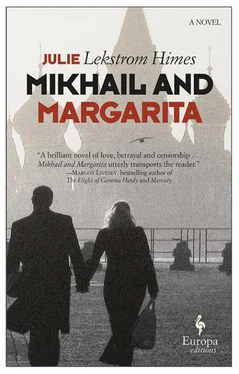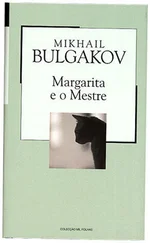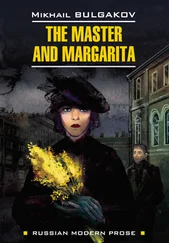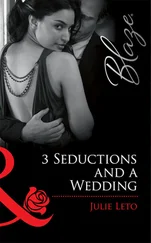Bulgakov glanced away again. “Is that Likovoyev? I haven’t seen him in months.”
“He’s been at Peredelkino.”
Of course. Bulgakov smiled. “And I thought he’d died.”
Mandelstam lowered his head, whether from the heat or the conversation, it was difficult to say. He seemed disinclined to pursue other old topics: the necessity of placating critics, of transforming editors and directors and producers into advocates. Bulgakov was grateful, though he considered that in this, and possibly in other ways, too, he’d plumbed the limits of a friend’s fortitude.
“Perhaps you should write poetry,” said Mandelstam.
“Aren’t you concerned I’d give you competition?” Bulgakov had intended this to be funny. He downed what remained of his vodka.
Mandelstam waited for his attention. “Only in this country is poetry respected,” he said. “There’s no place where more people are killed for it.”
He was prone to speak in such a manner. Bulgakov found it tiresome; he did not share his friend’s political discontent. This was not so much a stance, he told himself, as a lack of interest. He barely read the papers; he listened to the radio for its music. Yet because of this edge in Mandelstam a certain wariness was necessary, a constant recalibration of the space of their relationship. That was what was tiresome. He noticed that the poet had acquired a spot on his shirt since the start of their dinner. He was often careless, and Bulgakov found himself further annoyed by this. “One might argue, then, that writing poetry would not be such a good idea.”
Mandelstam smiled. Perhaps this was so, he agreed.
Likovoyev moved from table to table, clasping hands as each patron rose from his seat. Only brief exchanges, and Bulgakov observed with mild interest as shifts in the Union’s hierarchy were revealed. Likovoyev went next to the Art Theater’s new librettist; then bent low to ingratiate himself with the man’s young wife, a former countess, holding her hand for too long, ignoring her husband until she looked away, embarrassed. He was stork-like in his maneuverings; his awkwardness made him even more comedic. Bulgakov’s lips parted.
“What is it?” said Mandelstam.
“Our beloved critic,” said Bulgakov. “Among his many crimes, he is an appalling flirt.”
“My wife seems to be immune to his advances.”
“You are fortunate.”
“In some ways, Nadya is like a nun. How is your Tatiana?”
The waiter appeared and replaced his drink. Bulgakov waited until he’d receded. “She’s moved in with her sister and her husband.”
Mandelstam seemed to check his surprise. It occurred to Bulgakov that this was already common knowledge. Their wives had been friends of a sort, sharing the burden of writer-husbands.
“Their apartment is larger,” said Bulgakov. “And—they have a private bath.”
Mandelstam nodded in feigned support of the wife. “I would leave you, too.”
Likovoyev moved on from the librettist and was embracing a young poet. Bulgakov emptied his glass again. He remembered the precise moment he had fallen out of love with his wife. An acquaintance had introduced them at Bulgakov’s request. For weeks she’d gently rebuffed his advances with teasing words he’d found endearing, then one evening, without explanation, she’d stayed. He remembered her sitting on the edge of his bed, the pearl-shaped buttons of her blouse between her fingers, undressing for him; he remembered the low angle of orange sunlight through the dirty window. He remembered watching his desire fall away as the chemise dropped from her shoulders. If only she would leave, he thought. Perhaps if she had, his desire would have returned; but she’d remained.
He’d married her anyway. He felt their lovemaking had been a kind of agreement to this. And he felt sorry for her, for being unloved. And she was fine, really. They got along well. She left him alone to write and was sufficiently distracting when the loneliness turned on him.
Likovoyev was standing by their table. Startled, Bulgakov laughed aloud. “I thought you were the waiter,” said Bulgakov, lifting his empty glass.
Likovoyev bared his teeth in what might be called a smile.
Mandelstam interceded. “You look remarkable. Your time at Peredelkino served you well.”
“It did,” said the critic. “I banished all thoughts of this place, I must say, all—except—inexplicably, you.” He nodded to Bulgakov.
“Then you must return, immediately, and try again,” said Bulgakov. “I will petition the Union Chairman on your behalf, first thing tomorrow.”
Likovoyev ignored this. “I understand you have a new play under production at the MAT. All is going smoothly, I pray?”
“We open at the end of the month.” Bulgakov didn’t bother to restrain a bit of swagger.
“So glad to hear. I’d heard mention of a delay.” Likovoyev hesitated as though he might say more, then changed his mind. “I was obviously misinformed.”
This was unexpected. “No,” said Bulgakov, rather too quickly. “No. Not at all.” Likovoyev looked again at Mandelstam as if for some sort of verification.
Bulgakov wanted to say that the play was progressing well, ahead of schedule, in fact, though this wasn’t true. They were behind, but not irrevocably. Perhaps seven or eight days; certainly no more than two weeks. But the delay wasn’t entirely his concern. The director, Stanislawski, had seemed to be avoiding him of late, locking himself in his office for hours until Bulgakov would bully his assistant to open it, only then to find that the director had somehow slipped away. Bulgakov had convinced himself this was all his imagining but now his worries bloomed afresh. He wanted to question Likovoyev further, but the other was already speaking.
“Frivolous gossip, then, no doubt. I knew it was nothing to heed.”
“Stanislawski has made no mention—” Bulgakov began. Mandelstam frowned.
“Yes? I am so relieved,” said Likovoyev. “And thankful to have spoken with you.” He nodded. “I will look forward to Moliere ’s opening—and to my humble review.”
“Yes—to your review,” Bulgakov echoed. Some part of him vaguely wished the critic would stay. For the first time, he looked forward to a Likovoyev review.
“I won’t keep you from your meal.” Likovoyev seemed more jovial than when he’d arrived, as though he’d extracted the better part of their good mood. “Please give my regards to your lovely wives.” He bowed and turned away. Bulgakov watched him recede.
Mandelstam leaned forward. “He’s not the reason for your—for Tatiana’s—”
Bulgakov shook his head. “No, that was my fault.” The critic was already several tables away. He bent low, to address some other writer’s wife. At the woman’s words, he dropped his head to the side, his eyes boring into hers. Bulgakov recognized the harmless gestures. Now he could almost forgive him for them.
He turned to Mandelstam. “What about a delay? Have you heard such rumors? Have you?”
Mandelstam was poking the remains of his dinner with his fork. “You’ve spoken with Stanislawski yourself. All is fine.”
“Yes, we’ve spoken.” Bulgakov tried to remember the last time they had. “I must speak with him again.” He needed this production. Other recent efforts had been poorly received and short-lived.
“I’m surprised he’s not here tonight,” said Mandelstam. He considered a nondescript piece of meat. “Of course, it is a Tuesday.”
Likovoyev kissed the hand of the writer’s wife. Bulgakov watched him straighten and bow to her, then to the husband, helpless beside her. The woman lifted her eyes to the critic in a kind of wonderment; a combination of mild loathing and speculation. Bulgakov looked away.
Читать дальше












